Looking at Kirsty Speers you would never know that just a few months go she underwent ‘the mother of all surgeries’ – resulting in nine of her organs being completely or partially removed.
This came after the 34-year-old Dundee University senior admissions officer was diagnosed with a rare cancer in August last year.
Initially Kirsty, who lives in Broughty Ferry, thought she was just putting on weight as her tummy was very swollen and solid.
Her GP even likened her to being seven months pregnant.
“Last summer I started to feel like I was putting on a bit of weight,” she explains.
“I remember thinking, God your tummy is getting a wee bit big and a wee bit hard.
“I was also getting really bad heartburn, acid reflux and I wasn’t eating much because I had no appetite.
“When I saw the doctor, he kept asking me if I was pregnant and I was like ‘no definitely not’.”
An ultrasound scan revealed Kirsty had a ‘very large cyst’.
And she ended up being diagnosed with pseudomyxoma peritonei – a rare cancerous tumour that causes a build-up of a jelly-like substance in the abdomen.
After major surgery and a period of recovery, Kirsty is keen to share her story to raise awareness of the disease.
When did Kirsty realise something was wrong?
Over the last few years Kirsty has had an intermittent sharp pain in her right side.
But as she had previously been diagnosed with polycystic ovaries, she was told it might be related to that.
Then in July last year she noticed her stomach was looking bloated and felt hard.
She was also experiencing heartburn and a loss of appetite.
“I phoned the doctor, explained my symptoms and he gave me tablets for the heartburn,” she says.
“But after I got them, I had a feeling that something still wasn’t right.
“So three days later I phoned again and this time the doctor asked to see me.
“Instantly he could see how solid my tummy was and he likened me to being seven months pregnant.
“He then referred me for an ultrasound scan which I had the next day in Arbroath Infirmary.”
During the scan nurses told her they could see a large cyst which looked like it was coming from her ovaries.
“I broke into tears because when you hear the word ‘cyst’, you immediately just think cancer.
“There was no mention of cancer at that point, they just said that they had seen something which needed investigated.”
When was Broughty Ferry’s Kirsty diagnosed with cancer?
The following week Kirsty met with a consultant in gynaecology at Perth Royal Infirmary.
She had an internal scan before having two medical procedures – a colonoscopy and an endoscopy – with biopsies done.
Then in August Kirsty went into Ninewells Hospital with partner Neil Petrie for a consultation with her surgeon.
At that point, her surgeon diagnosed her with the rare cancer pseudomyxoma peritonei.
And by strange coincidence, it was the same cancer Kirsty’s mother-in-law Anne had.
She passed away just before Kirsty’s operation.
“Neil couldn’t believe he was being told that I had same rare cancer his mum had – it was also the same surgeon who had treated her.”
The surgeon then told Kirsty she would need to have nine of her organs completely or partially removed.
“My surgeon said they would have to remove my appendix, gallbladder, spleen, uterus, ovaries, fallopian tubes and omentum (fatty tissue that surrounds the stomach and abdominal organs).
“They were also going to remove part of my small bowel and take a shaving off my diaphragm.
“I was told I would need a full hysterectomy, which I accepted, as having children wasn’t something I had necessarily wanted.
“I also knew that if I wanted to have my eggs frozen that would only delay the surgery and I didn’t want any delay.”
She adds: “I remember sitting there and my mind just went blank. All I could think was ‘when is the surgery happening?’
“At that stage I was just in ‘let’s get this sorted’ mode.”
When did Kirsty have the operation?
At the start of September, Kirsty was admitted to Ninewells Hospital to have the 16-hour operation.
“I remember the nurses coming to get me for the operation.
“It was then I just broke down in tears because I was thinking: Will I wake up from this?
“But when I went into theatre everyone was so lovely and put me at ease.”
During the operation Kirsty had heated chemotherapy which was flushed through her abdominal cavity to kill off any remaining cancerous cells.
Initially she woke up in intensive care before being moved to the high dependency unit for the next 12 days.
Coming to terms with having a stoma bag
As well as dealing with the effects of surgical menopause following her operation, Kirsty also had to learn how to adapt to life with a stoma.
While Kirsty knew having part of her small bowel removed would result in her having a temporary stoma, she wasn’t prepared for how she would feel.
“For weeks after the surgery I couldn’t accept the stoma bag. I didn’t want anything to do with it.
“But then one day my friend Laura came to visit me and she was like ‘Ok let’s change your bag together’.
“After that I started to accept it a lot more.”
When Kirsty was still in hospital recovering, her surgeon told her that everything went to plan in the surgery.
And that she would be monitored with regular CT scans over the next 10 years.
Family support
Kirsty’s mum, dad and sister Laura live in Belfast, where she is originally from.
But they have been back and forward to see her throughout her recovery.
She has been thankful for their ongoing support.
“My friends and family have been amazing.
“Neil has been really supportive too and it has been difficult for him as his mum passed away from the same rare cancer last year.
“He has taken time off his work to look after me.”
‘Taking your health for granted’
Despite an initial setback after her operation – when Kirsty had to be readmitted to hospital for a procedure to release a restricted muscle between her stomach and intestine – she is now on the road to recovery.
And she says the experience has made her appreciate what is important in life.
“It’s terrible that something dramatic needs to happen for you to realise you take your health for granted.
“Going through something like this also makes you appreciate your family and friends more.”
She adds: “I also think it is important to advocate for yourself.
“Listen to your body so if something doesn’t feel right don’t be afraid to speak up and get it checked out because nobody can do that for you.”
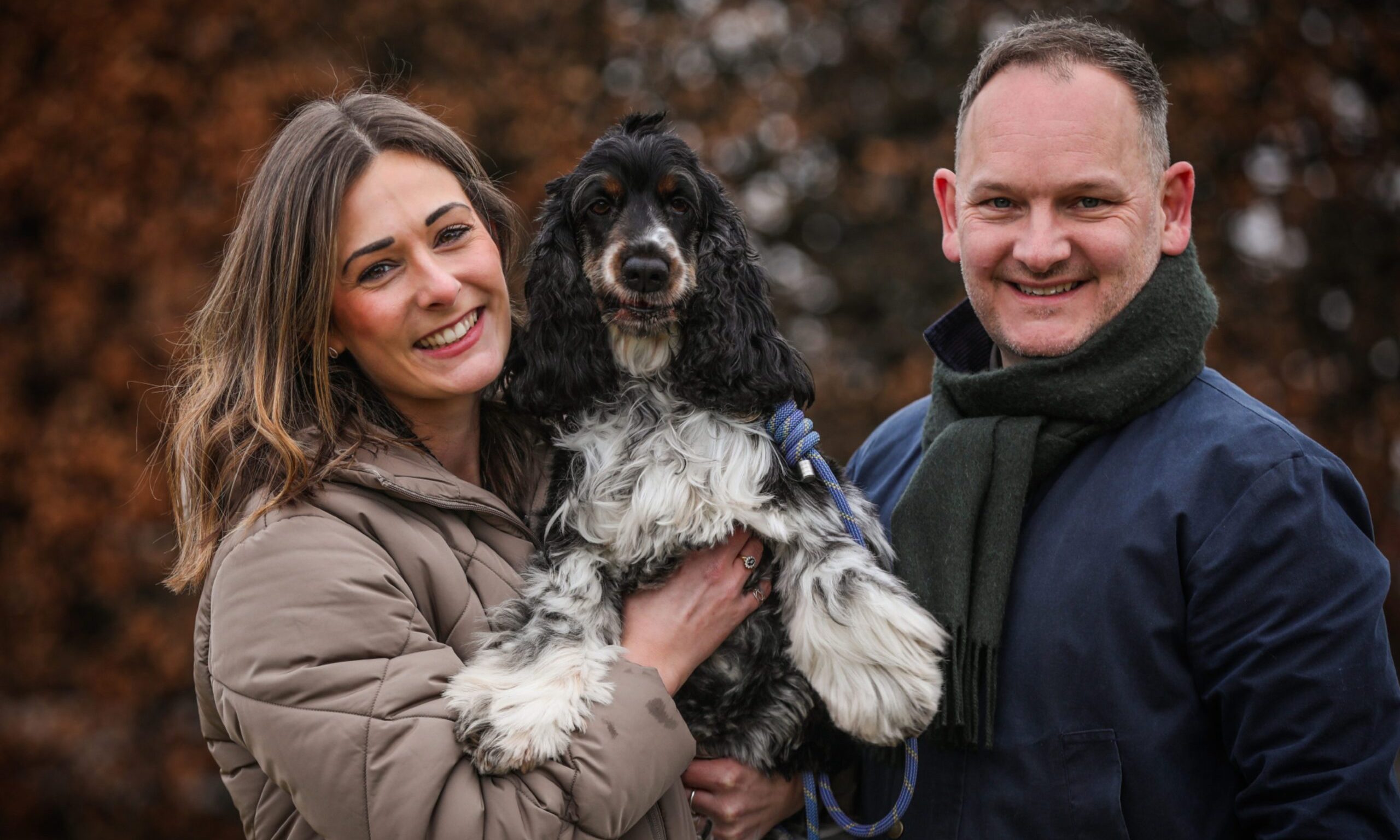
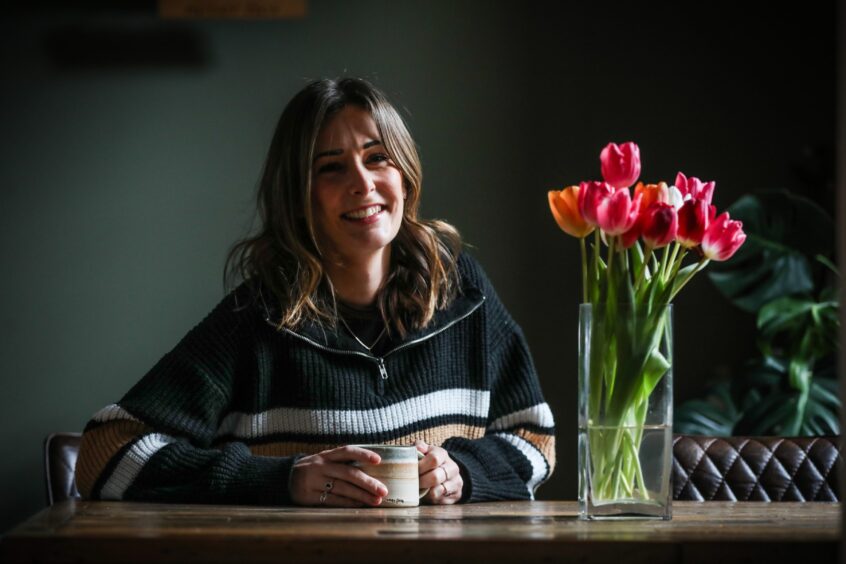
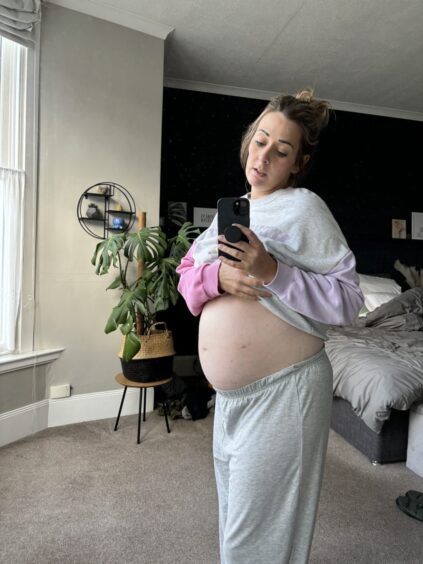
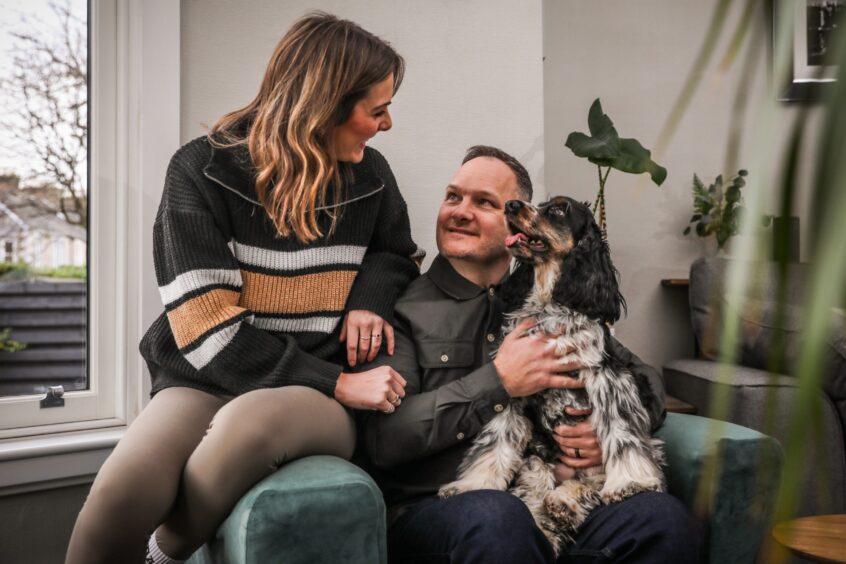
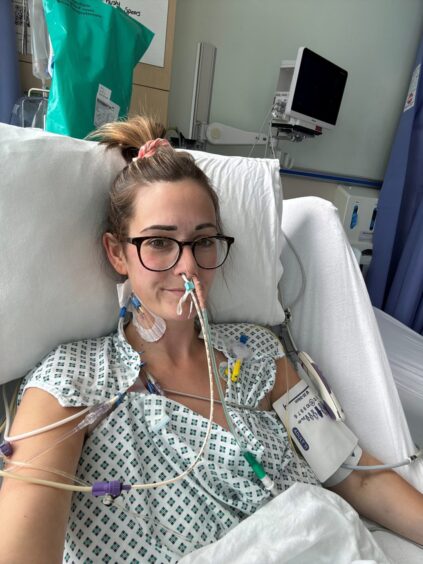
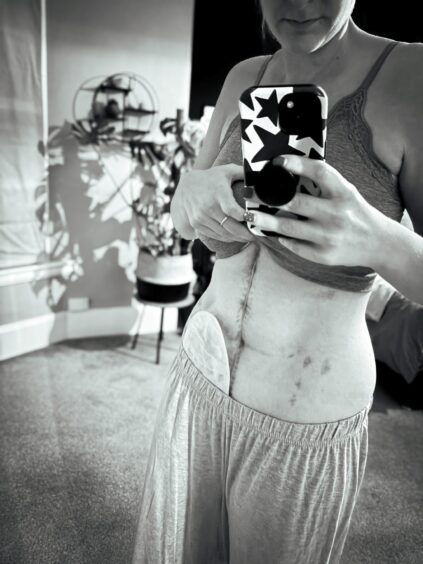
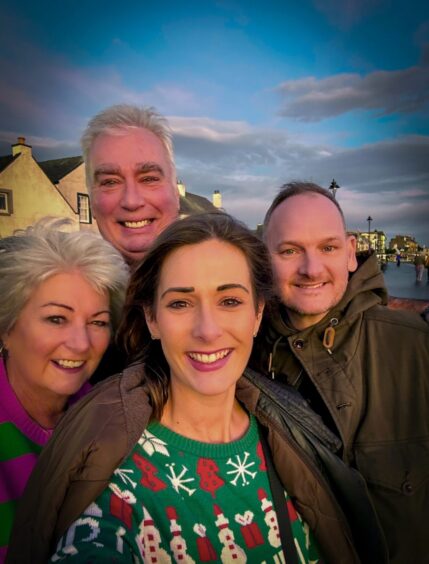
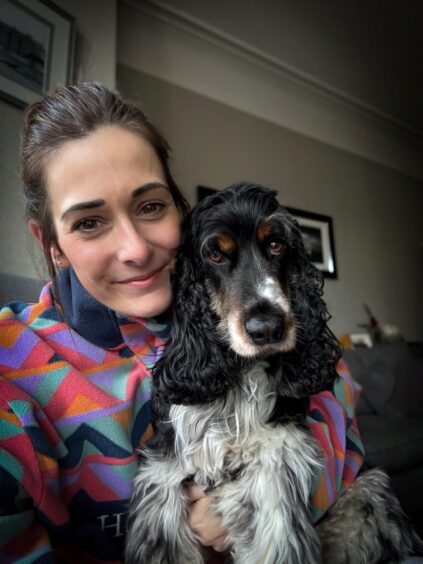

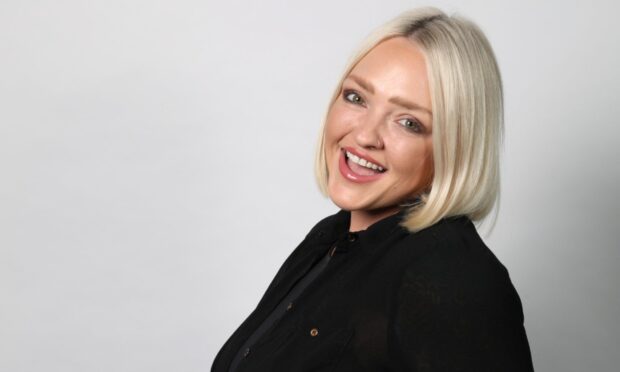








Conversation